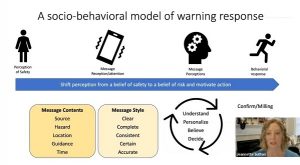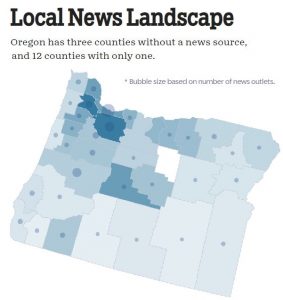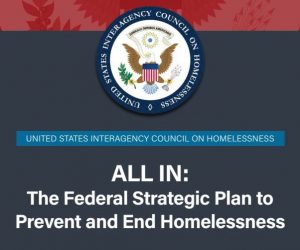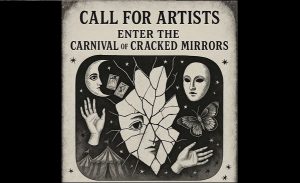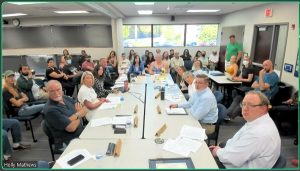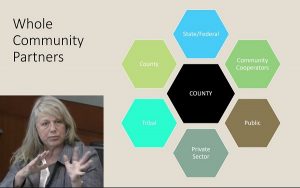Supreme Court case brought by DAPL lawyers threatens Native sovereignty
11 min read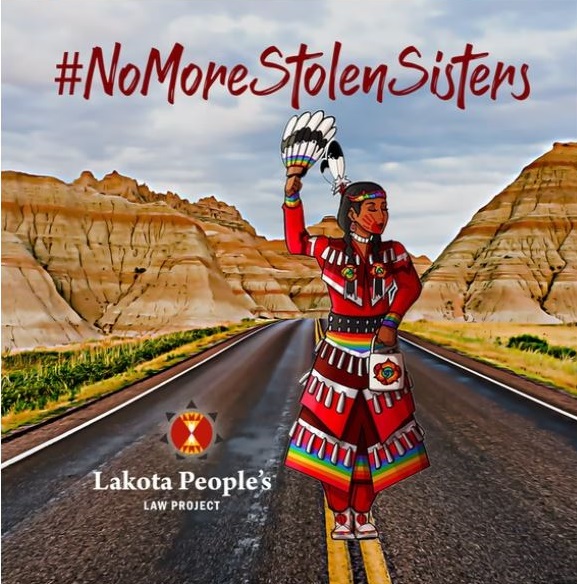
A legal attack on the Indian Child Welfare Act. It’s the latest threat to Native sovereignty. For LakotaLaw.org, Shaun Little Horn.
[00:00:08] Shaun Little Horn: You know, you talk about ICWA, you really have to go back to first contact with colonization, right? For us here in Oceti Sakowin, the Lakota people, we experienced colonization as they begin to expand west. And as they begin to expand west, we were forced to try to defend our people and our land and our way of life.
[00:00:29] And so most specifically in 1866 to 1868 was the Red Cloud’s War, which was a two-year war between the United States government and the Oceti Sakowin as well as the Northern Cheyenne and the Arapahoe. And actually a lot of people don’t realize, they don’t, you know, teach us too much in school, but we’re the only nations to defeat the United States, own their land, and take their flag.
[00:00:52] John Q: The signed 1868 Fort Laramie treaty acknowledges the Native victory.
[00:00:57] Shaun Little Horn: And so the United States came to us and they said, ‘Listen, we want to end this, right. We need to expand west and I know you’re tired of fighting. And so, let’s have a treaty.’ It’s supposed to be the supreme law of the land. The big part for us was the Black Hills, but part of that treaty is that we would move to reservations. And the idea was if they could get us on reservations, then ultimately we would die out.
[00:01:21] But as we do so many times when we’re left alone, we flourished and we didn’t die out. And so they begin to cut back our rations. They begin to cut back our supplies and that wasn’t working. So they said, okay, we’ve got to try something else, right. And so they decide that assimilation is the best opportunity.
[00:01:39] And this really came to fruition with a man by the name of General George Pratt. General Pratt, while he was over the Apaches in this prisoner of war camp, he put them through this assimilation process where he believed that they became ‘good citizens.’ They became colonized, if you will. And so it’s really interesting because their first assimilation boarding school, they didn’t choose an educational mind. They chose a prisoner of war general as leader, to lead this thing. And so he started the Carlisle Industrial School.
[00:02:10] And what he said was this: ‘It’s been said that the only good Indian’s a dead Indian,’ you know, that’s the only way that they’re any value. And he said, ‘I’ll somewhat agree, that if you can kill the Indian within them, that they can become good people.’
[00:02:24] And so these schools we know as ‘Kill the Indian, save the man’ boarding schools grew to hundreds and hundreds across the United States during this time.
[00:02:32] John Q: The teaching method relied heavily on punishment.
[00:02:36] Shaun Little Horn: The first thing that would happen is that they would cut their hair. They would take away their traditional garments. They would take away their proud Lakota names, their proud indigenous names, whatever tribe they were from. And they would give them white names.
[00:02:51] They tried to strip us of everything that makes us who we are. If you spoke your language, you would be beaten. You would be harshly punished. You could only speak the English language. You could not speak Lakota. You could not speak your tribe’s language, or you would be physically assaulted.
[00:03:09] These boarding schools, they’re taken away from their families. They’re beaten for speaking their language. They’re beaten if they do anything within their culture. They were sexually assaulted over and over. Thousands of them killed and murdered and put away.
[00:03:21] It started, you know, really in the late 1800s or early 1900s, and this went all the way. In the fifties and sixties and seventies, these schools were still around.
[00:03:29] John Q: Shawn said you could purchase your own child slave for ten dollars in the 1950s.
[00:03:34] Shaun Little Horn: In the 1950s, here in South Dakota a document was found where this school was taking and they were selling Lakota children, and Dakota children, Nakota children for $10. For a $10 donation in the 1950s, you could have an Indian child sent to you.
[00:03:53] And this particular document is really interesting. It’s this really sad story he tells. He said he was basically always slave labor while he was there. He was put on a bus at five years, six years of age and the bus breaks down. He soils himself, he’s left alone. He only had a bag. He gets there and he’s always just basically hired labor. So this is the 1950s that this is going on.
[00:04:15] And that really transitions to the American Indian Movement. Because at this point, as our language had been stripped from us, our culture had been stripped from us, our way of life had been stripped from us. We had gone from our communities raising us to a generation that didn’t have fathers and mothers, that the only type of discipline that they understood was the abuse that they received at the hands of nuns and priests. That was all that they knew. And so this terrible epidemic began to pass through to children and generations.
[00:04:45] And in 1968, a group of people came together, the American Indian Movement, our civil rights group, Russell Means and Dennis Banks and these guys, they came in and they said, ‘Enough is enough. We are going to be proud to be who we are. We’re going to learn our language again. We’re going to keep our ceremonies and our spirituality.’
[00:05:04] So the American Indian Movement comes into Wounded Knee and they are like, ‘This is enough. We are going to be here and we’re going to stay here until things change.’ And they had a list of demands and you know, the United States opened up the first shot, but there was actually 70+ days of fighting and shooting within this little community. There were tanks along our road, as the National Guards came in to fight a few hundred people.
[00:05:24] One of my real heroes, I mean, you talk about a woman that has transcended and done amazing things for our people, that’s Madonna Thunder Hawk, but she was a part of that. And so out of that, eventually they say, ‘Okay, we’re going to let you have a voice. We’re going to allow you to say things.’
[00:05:41] John Q: The U.S. Senate hearing on Jan. 31, 1989 heard from the American Indian Movement.
[00:05:49] Russell Means, American Indian Movement: It is an honor to come before you as a spokesman for my people, the American Indians of the United States of America. In these United States of America, this great country of ours, we American Indians, we can be anything we want to be except American Indians. And, and that is created by the laws of this nation and condoned by its subsidiaries, the so-called tribal governments, and designed for the Indian to fail, to be expendable, to be eliminated.
[00:06:29] John Q: Later in that same hearing:
[00:06:32] Russell Means, American Indian Movement: American Indians are human beings. We are supposed to be citizens of the United States of America. We fought in your wars in other countries. Our Navajo Nation Code Talkers served and saved this nation in World War II.
[00:06:52] Shaun Little Horn: Yeah, that first line always resonates me with me so strongly, that: ‘In the United States of America, an American Indian can be anything that he wants to be but an American Indian,’
[00:07:02] You know, we talk about ‘We, the people,’ well, ‘We, the people’ has never meant all the people, right? From the very beginning, the Declaration of Independence, we were described as ‘merciless Indian savages.’ We’re considered less than human throughout history.
[00:07:17] When you talk about freedom of religion, which I’m a fan of, I believe anybody should be able to celebrate and practice any religion that they want to, just going into a sweat lodge and praying and singing a song was illegal for us. Till 1978, our ceremonies, our way of life had been banned. So that kind of gives you how recent that was for us.
[00:07:37] And all we’ve ever wanted to do is be who we are. We know what’s best for our children. We know how important our culture, our language, our life ways, our spirituality is. We’re not looking to be a part of your system. We want to be in harmony with you. We want to work hand in hand with you. We want to be allies with you, but we want to be who we are. We don’t want the colonized system. We want our way of life and we want our children to flourish in our way of life.
[00:08:07] John Q: Native sovereignty is now threatened by a child custody case that oil company lawyers are taking to the Supreme Court.
[00:08:15] Shaun Little Horn: There was a young Navajo child that had been taken from his parents because of substance abuse. But he was with his grandparents, grandparents were raising him, but they just, very, very quickly as it happens, they terminated the parents’ rights and they put him in— opposite of what’s supposed to happen because of ICWA— they put him into a white home in Texas. And the Navajo Nation has the right because of ICWA to find a better suitable home for this child that will allow them to be Navajo, to allow them to be a part of who they are.
[00:08:45] And so they’re placed in this home. Navajo (Nation) finds a family that’s close to this child and they want to take care of this child. And so, they’re going to be awarded back to them. So, this Brackeen family, they file suit and very quickly the suit is denied.
[00:09:01] But what’s real interesting is, just six days— think about this— just six days after it’s turned down, Gibson Dunn begins to file on their behalf. Gibson Dunn is known for their work with big oil companies and they represent the companies that have tried to push forward the Dakota Access Pipe Line and then Line 3, these illegal treaty pipelines that they’ve tried to push.
[00:09:23] And then maybe even more strange, they get the attorney general involved at the family court level, which is, you know, almost unheard of. And then maybe just even a little bit more stranger, they bring in three other states on this lawsuit against Deb Haaland, which is Indiana, Ohio, and Louisiana.
[00:09:40] Now that’s interesting because you’ve got oil lawyers working pro bono, by the way, for free. You’ve got four states and, and of those four states, they only represent about one percent of the total Native population. Very few cases would ever come through there, yet here they are trying to overturn ICWA.
[00:10:01] What they’re saying is that we are not nations. We are a race. And since we are not nations and we are a race, it is actually reverse discrimination against the white family, because they’re not being allowed to get this Navajo child because they are white.
[00:10:18] And so if the Supreme Court says, ‘Yes, they are a race, not nations,’ then what that means—and the reason that Gibson Dunn is involved in this, most likely—is now we can go in and we can take all the resources from these nations, we can put the pipelines through these nations, because they’re not nations, it’s just land, and they’re just people.
[00:10:38] John Q: It’s been called the most important case in a generation.
[00:10:42] Shaun Little Horn: If tribal sovereignty is overturned, first of all, you’re going to see us stripped of our sovereignty, which we’re not properly given, but what we do have left, and number two, it’s going to be open season on our children. They’re going to come back and they’re going to begin to steal our children with no repercussions and no way of stopping it. And so this is in my opinion the most important time that we’ve had since 1978, when the Religious Freedom Act and the Indian Child Welfare Act was passed. It is crucial that we get support and people behind us on this.
[00:11:14] John Q: As the U.S. government fails to honor its treaties, the consequences on the ground are already visible.
[00:11:21] Shaun Little Horn: Because of this system and lack of respect for sovereignty that the United States of America has for our nations, we have one of the most unbelievable epidemics that’s going around, and that is our women and our children and our two spirit people being stolen, killed, raped, and never anything coming from it.
[00:11:42] If a nonnative comes on the tribal land and they commit a crime, the tribal government almost never can prosecute that person. Our tribal government cannot prosecute. The only people that have that right to prosecute them is the United States federal government, and out of 5,712 cases in 2016, only 116 of those 5,712 were logged into the Department of Justice database, because what happens is these pipelines, these workers come on, they’ll rape and kill our women and our children, and they can disappear. They can go away. And there’s no repercussions.
[00:12:22] We have a bad problem with truckers that will drive through the land. They’ll see ’em, they’ll pick ’em up. Our children are trained very early. Got a young neighbor that walking to the park, and I said, ‘You’ve got to stay beside me. We’re going up to the park. Want you stay right beside me, don’t get ahead.’ She’s like, ‘I know, so that I won’t be taken.’ Taken. Kidnapped. Because they know that this is their life.
[00:12:41] They can grab our women, our children, they can rape them. They can kill them. They can do whatever they want. And there’s no repercussions. Our women and children have to worry every single time they leave the home because a nonnative can rape, kill them, murder them, and never be prosecuted and almost never even looked at.
[00:12:57] John Q: The violence will be unimaginable if the Supreme Court throws out the Indian Child Welfare Act. He encouraged people to get involved at LakotaLaw.org.
[00:13:08] Shaun Little Horn: The Supreme Court, they might overturn it. And when they do, if we don’t have that support already in place, we’re in a lot of trouble. If we do, we can help get legislation passed as we pressure these Congresspeople. But if not, the world as we know it as Lakota people—the assimilation, the genocide might be complete.
[00:13:25] If people will go to LakotaLaw.org, they’ll see on that front page, when it comes to Missing and Murdered Indigenous Women, we have a call to action there, and it takes about 30 seconds if you go and fill that out and that’s all that it takes.
[00:13:37] John Q: A conservative Supreme Court could throw out a law that represents best practice in child welfare policy. Oral arguments are expected in November.
(With thanks to the Carter Center)
